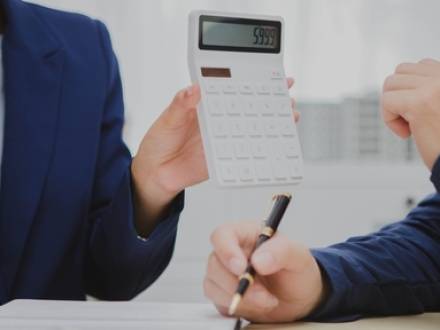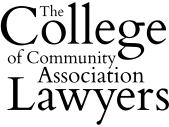 Polish,
Polish,  Ukrainian,
Ukrainian,  Russian,
Russian,  Hindi,
Hindi,  Spanish,
Spanish,  French and
French and  Greek.
Greek.
How Are Condominium Delinquencies Handled After 90 Days?
 When a unit owner in an Illinois condominium association falls behind on assessments, it can place a burden on the entire community. Illinois law allows associations to take specific legal steps to recover the amounts owed after 90 days of nonpayment. The process can escalate quickly from late fees and demand notices to eviction proceedings.
When a unit owner in an Illinois condominium association falls behind on assessments, it can place a burden on the entire community. Illinois law allows associations to take specific legal steps to recover the amounts owed after 90 days of nonpayment. The process can escalate quickly from late fees and demand notices to eviction proceedings.
It is important that condominium associations are clear about their rights and responsibilities. The board has a fiduciary duty to manage the association, including taking appropriate steps to collect delinquent assessments and ensure the association's financial stability. When questions arise, having a strong legal advocate is extremely important. An Arlington Heights, IL condominium law attorney can ensure that all steps taken comply with Illinois laws.
What Happens After 90 Days of Nonpayment in a Condominium Association?
The consequences of nonpayment generally escalate over time. After 90 days of nonpayment, more serious actions may be taken. Most associations will begin by imposing late fees and interest charges on the outstanding balance. Because these costs can accumulate quickly, they can often remedy nonpayment in many cases.
At the 90-day mark, the association may hire an attorney or a collection agency to handle the collection process. Perhaps one of the most significant consequences of nonpayment after 90 days is the potential for the association to place a lien on the property. The lien is a legal claim against the home, which clouds the title and prevents the owner from selling or refinancing the property until the debt is resolved.
The lien amount can include unpaid common expenses, fines, interest, late fees, and reasonable attorney’s fees. The association can choose to suspend the owner’s voting rights, as well as the use of common amenities such as fitness centers or swimming pools; however, access to roads and sidewalks may not be restricted. The association can eventually force the sale of the unit to recover the delinquent assessments through the lien.
Under the Illinois Eviction Act, condominium associations can file an eviction action against the owner for nonpayment, similar to a landlord-tenant eviction. The association can then rent the unit for a limited period (typically 13 months) to recover the delinquent amounts, but the owner still retains ownership of the property. The association may file a lawsuit to obtain a monetary judgment for the delinquent amounts, interest, late charges, and attorney’s fees.
If the owner no longer owns the property due to foreclosure, the association can pursue a breach of contract action against the former owner. Before any legal action can be taken, the condominium association must provide the owner with at least 30 days written notice to pay the delinquent assessments.
What Are the Best Practices for Condominium Associations?
It is important that associations consistently engage in proactive communication and enforcement for nonpayment by condo owners. Maintaining clear records and ensuring that statutory notice procedure requirements are adhered to is equally important. Before eviction or foreclosure proceedings are initiated, it is always best to seek legal counsel. Delinquent condominium assessments can quickly lead to legal headaches for associations, requiring strategic actions that always comply with Illinois law.
Contact a Cook County, IL Condominium Law Attorney
It can be exceptionally beneficial to speak to a highly skilled Arlington Heights, IL condominium lawyer from Dickler, Kahn, Slowikowski & Zavell, Ltd. before taking any steps that could be irreversible and potentially damaging to the association. Our firm has more than 150 years of combined legal experience, which benefits your association. Call 847-593-5595 today to schedule an initial attorney meeting to discuss your condominium association issues.















